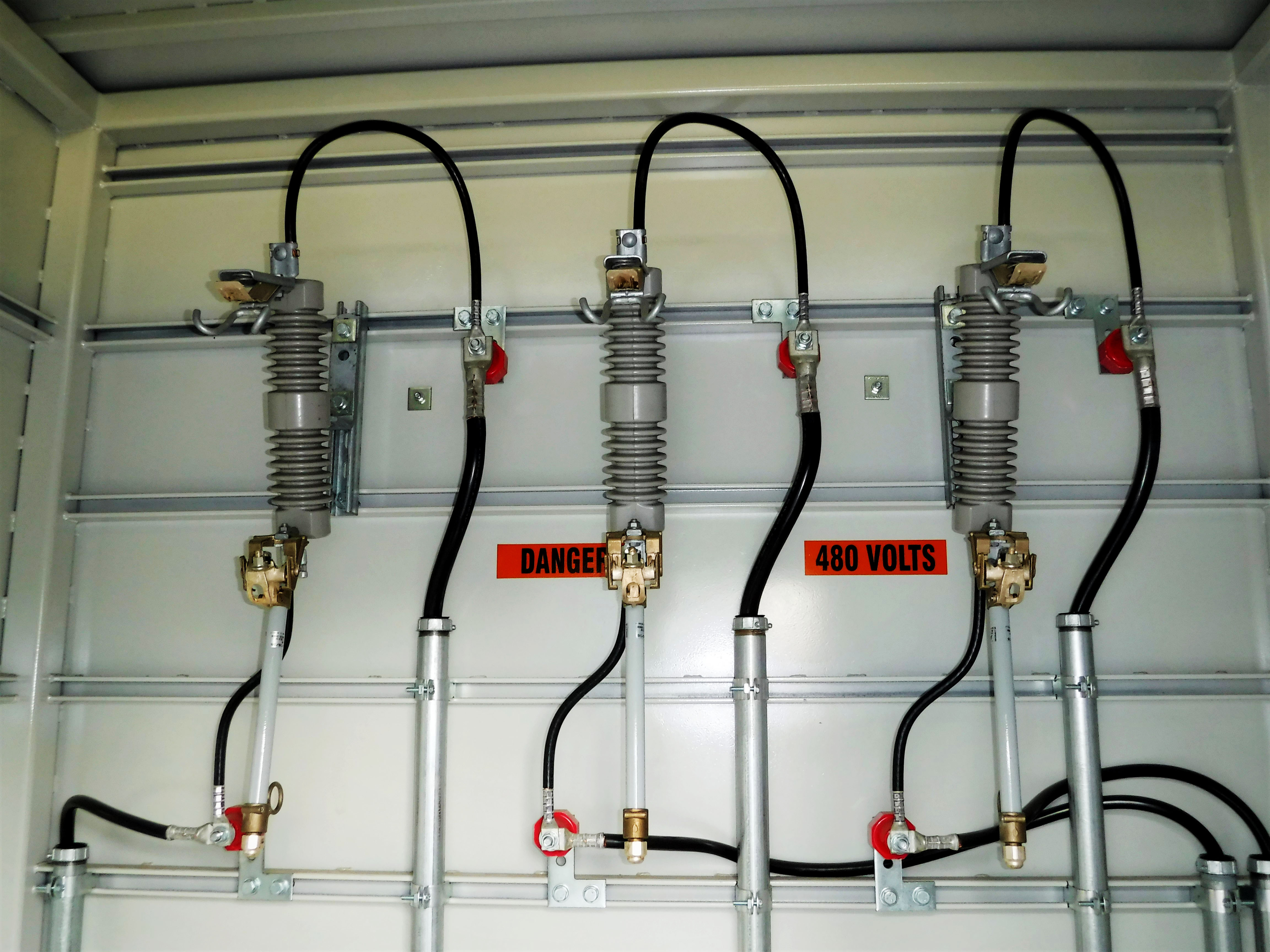Emulator to Characterize Impacts of Electric Faults on Microgrids

ACEP’s Power Systems Integration Lab has completed the installation of an electrical fault emulator for hybrid-diesel microgrids. Commissioning of the emulator will now commence, and it’s expected to be completed by the end of July 2018. Design basis for the fault emulator is a 500 kW microgrid emulator operated by ACEP.
The emergence of power electronics-driven equipment, such as wind turbines, photovoltaics and energy storage, makes it necessary to gain a better understanding of fault capabilities and associated necessary changes to protect the grid and the control systems. The fault emulator is designed to provide 1:1 data sets that will be analyzed to gain an understanding of the impacts of faults on grid inertia. This is a need identified by ACEP and utility partners and will help to accurately represent transient dynamics in a grid. The emulator will enable ACEP to study the capabilities of power electronics devices to provide fault current, test protection settings and benchmark control systems performance under fault and for fault recovery conditions.
The design and installation of the fault emulator has been funded by the U.S. Economic Development Administration and the Office of Naval Research as part of the Alaska Center for Microgrid Technologies Commercialization. The center strives to improve the affordability and reliability of microgrid energy systems through the provision of technical and business assistance for accelerating commercialization and implementation of relevant technologies.
A view inside the emulator cabinet shows three main fused cutouts that will control the faults on the simulator. Photo by David Light/ACEP.


